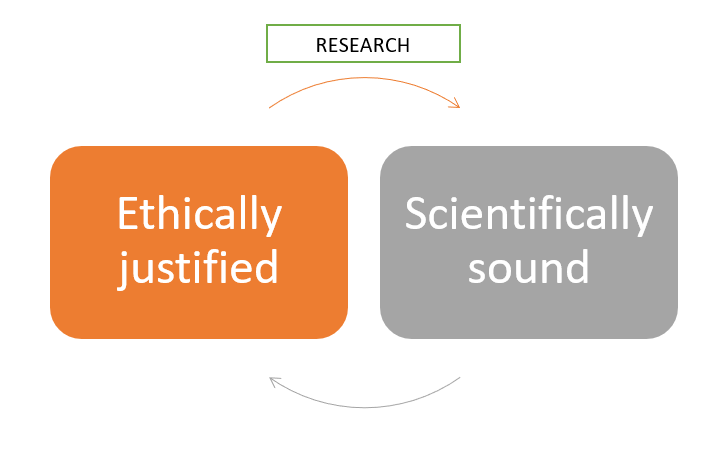An Ethically Justified and Scientifically Sound Research

Written by Dian Sufyan
“Scientific review and ethical review are intertwined: scientifically unsound research involving humans as subjects is ipso facto unethical in that it may expose them to risk or inconvenience to no purpose; even if there is no risk of injury, the wasting of subjects’ and researchers’ time in unproductive activities represents loss of a valuable resource” (CIOMS, 2009)
To date, research is proven to be the way of pushing the borderline of knowledge. The invention of current technology is also the result of continuous research, as it leads us to new discoveries. The urge for finding new things will always be there since basically research is a journey into the new unknown. Therefore, it will always be a part of human lives.
There are two fundamental tenets on conducting proper research, mainly for studies involving human subjects. It should be ethical and scientifically sound. Ethically sound research required to be in line with three basic ethical principles as followed:
Respect for person
Encompasses two basic considerations, which are respect for the autonomy (let the subjects make their personal choice to the involvement of the study) and protection to the person with impaired autonomy (the involvement of vulnerable subjects). Whatsoever the choice made by the subjects, as researchers we should give respect.
Beneficence
Responsibility to maximize the benefits over the harms. The possible harms that might be introduced by research could be physical, such as taking blood or other specimens. However, it is not always the case. For studies that involve only questionnaires administered, may exposed subjects to psychological harms (e.g. Asking a sensitive question like the experience of domestic violence). Addressing these possible harms during research is fundamental. Therefore, it is important for the researcher to make sure that they are competent and the study aims to offer great deal of benefits. Not doing harm in some references is pointed as a separate tenet as nonmaleficence.
Justice
Numbers of different factors will be faced for studies involving human subjects, for instance, age, education attainment, socio-economic status, ethnicity, culture, and so on. However, the ultimate principle is to do what is right and proper, undiscriminating. One example to do so is by conducting randomization for taking the sample, moreover when researcher requires to decide the control and experimental group on trial. Protection of rights and welfare should be taken as precedence.
All research should have corresponded to accepted scientific standards. Because scientifically unsound research is unethical, since it exposes subjects to risk without foreseeable benefit. Therefore, during the proposal development phase, study conduct and the research report should be based on scientific literature from credible sources. The scientific standards involve the study design, methods for taking the samples, instruments and tools used, and other points on the methodology. This scientific point of view should line title, objectives and methodology since the early phase of the study development. So that it may mitigate the risk for error or harms during the study conduct. Also, in accordance with beneficence, it is to maximize the benefits of the study.
In conclusion, ethical justification and scientific validity cannot be separated, as it intertwined. Research can be ethically justified only if undertaken in respectful manner, safe, fair, and outmost beneficial. Also, a study can be scientifically sound by ensuring conformity to acceptable scientific standards.
References
Email : kep[at]upnvj.ac.id
Whatsapp : 0821-1259-2258
Website : https://kep.upnvj.ac.id/